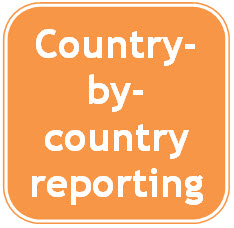
Ireland has, in all but name, gone bust.
Contagion — to UK and German banks and through the capital markets to Portugal, Spain and even Italy — may be contained as a result. The price is high. 80 billion Euros is no small sum, and there’s no guarantee it will be recovered. But is contagion is prevented that is a price worth paying.
Contagion though was not the sole issue of concern, and nor should it be if the problem is now contained. It’s fair to say that there are at least three others, and maybe more.
 The first is that the risk to a nation state from hosting corporations that trade well beyond their means is now readily apparent. And Ireland is not alone in this regard. The UK remains at significant risk in this respect. The case for country-by-country reporting is made stronger by the day a a result. The International Accounting Standards Board argument that the only people with interest in the accounts of commercial entities are the direct providers of capital is wholly untenable when it is clear that the supplies of contingent capital are whole populations of countries and they have no data whatsoever provided for their use on the country specific risks they face.
The first is that the risk to a nation state from hosting corporations that trade well beyond their means is now readily apparent. And Ireland is not alone in this regard. The UK remains at significant risk in this respect. The case for country-by-country reporting is made stronger by the day a a result. The International Accounting Standards Board argument that the only people with interest in the accounts of commercial entities are the direct providers of capital is wholly untenable when it is clear that the supplies of contingent capital are whole populations of countries and they have no data whatsoever provided for their use on the country specific risks they face.
Second, there’s much debate on Ireland’s 12.5% tax rate, and rightly so, but the bigger issue concerning this rate was highlighted by me based in my report on the Irish Congress of Trade Unions and for the TUC entitled “Pot of Gold or Fool’s Gold?” . The reality is that due to lax rules on transfer pricing, the taxing of dividends and controlled foreign companies it does not really matter what the tax rate is in the Republic — the tax base is or will always be close to zero and as such the rate becomes almost irrelevant. The need now is, therefore, for international cooperation on consistent approaches to tax havens, the prevention of harmful tax competition (in which Ireland has undoubtedly been engaging) and substantially enhanced transparency on issues such as transfer pricing. Country-by-country reporting would, again, be of massive benefit here.
Third, as the risk to the Euro shows, it’s almost impossible to run monetary union without fiscal unity, but Ireland has been one of the foremost opponents of tax cooperation in Europe, although like all who seem to promote abuse of the financial system, from banks onwards, it’s all too willing to accept the bail out funds now. If Irish objection to anything has to end now it is to tax cooperation in Europe and the creation of the necessary base for strong fiscal support for EU business — on which it has proven itself all too dependent. This ill require its agreement to the Common Consolidated Corporate Tax Base — a unitary formula basis for tax in Europe, for which country-by-country reporting is not a pre-requisite, but is an extremely useful tool.
This is too good a crisis to waste in the EU — the time for country-by-country reporting is clearly now, and Ireland has proved it.
Thanks for reading this post.
You can share this post on social media of your choice by clicking these icons:
You can subscribe to this blog's daily email here.
And if you would like to support this blog you can, here:



Just some thoughts:
1) I don’t understand why Ireland’s corporate tax rates aren’t on the table. I presume the loan is discretionary, so there’s no reason why this shouldn’t be conditional. Why aren’t the Eurozone and the UK insisting Ireland uses the considerable scope it has on corporate tax?
2) I noticed the US multi-nationals issued a threat last week through the American Chamber of Commerce in Ireland:
http://www.amcham.ie/article.aspx?id=771
3) From what I can see, Ireland has the lowest corporation tax rates in the English speaking countries. If Ireland’s economy has been built upon these tax-hoppers, then they were always going to face this problem as soon another country offered similar or lower rates. But there needs to be distinction between the transient “financial tax-hoppers” and the “manufacturing/assembly tax-hoppers.” The latter, I presume, would be reluctant to risk upheaval in a very uncertain world right now, for the sake of a few points in corporation tax. The “financial tax-hoppers” are what they are: here today, gone tomorrow. But Ireland seems to have built these into their ‘model.’
4) The Euro-loan seems to be coming from the emergency funds set aside earlier this year to allay market fears. I assume they’ll have to top this up now that some has been allocated to Ireland, even if Ireland don’t draw on it.